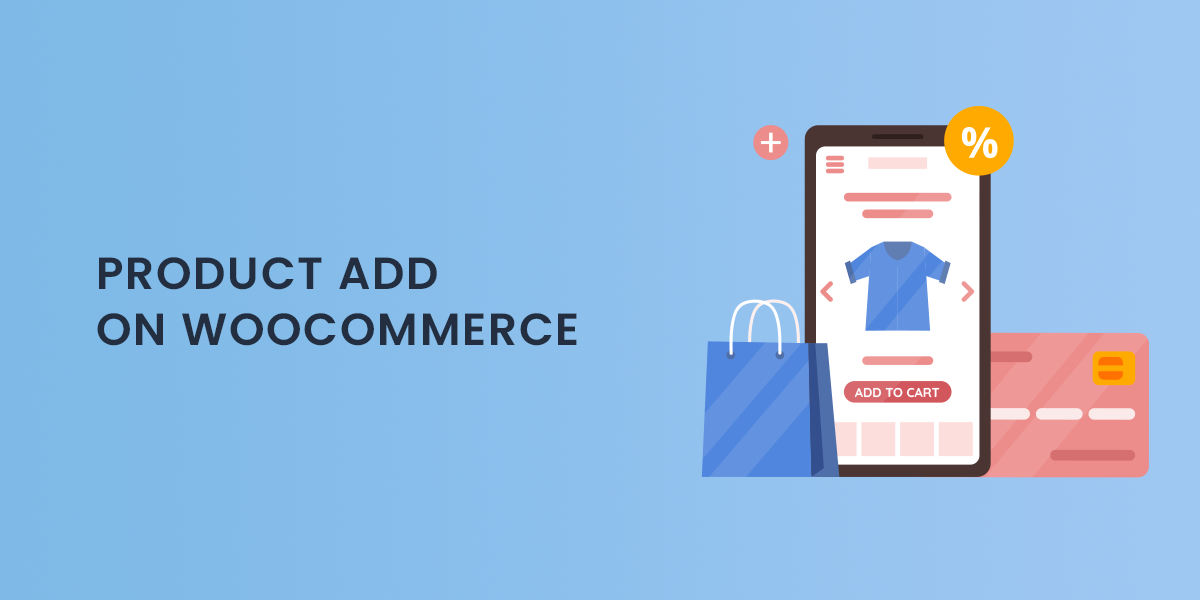WooCommerce Product Addons: Enhance Customization and Increase Sales
The WooCommerce Product Addons plugin allows businesses to offer custom options for products, elevating customer satisfaction and driving higher sales. By integrating additional product options, customers can tailor purchases to their needs, transforming standard product pages into interactive experiences.
Why Add Product Options?
With eCommerce trends moving towards personalized shopping, offering customizable product options can help retailers stand out. Giving shoppers the ability to select add-ons, upload files, and add unique touches can deepen customer engagement and satisfaction, encouraging repeat purchases.
Key reasons for using product addons include:
- Increased Order Value: Customization options like gift wrapping, premium materials, or personalizations (like engraving) encourage customers to spend more per order.
- Enhanced User Experience: By allowing tailored product selections, customers enjoy a unique, personalized shopping journey.
- Higher Conversion Rates: A richer shopping experience often leads to increased conversions, especially when customers can purchase unique, tailored items.
Key Features of WooCommerce Product Addons
The WooCommerce Product Addons plugin provides several flexible features, enabling you to create custom product configurations to meet various needs.
1. Diverse Addon Fields
Fields in WooCommerce Product Addons are highly flexible, with options like:
- Text Fields: Perfect for capturing information like custom messages or names.
- Checkboxes and Radio Buttons: Ideal for customers to select between options, such as extra materials or add-on accessories.
- Dropdown Menus: Great for extensive options, such as color or size variations.
- File Uploads: Useful for stores offering personalization services, like print shops or custom artwork providers.
- Number and Date Fields: For more complex product options, like selecting quantities or booking dates.
2. Price Adjustments
One standout feature is the ability to adjust pricing based on addon selections. You can charge additional fees for extra customizations either as a flat rate or percentage, giving customers flexibility while boosting your sales. For instance, if a customer selects a premium fabric, you could apply a 15% price increase.
3. Conditional Logic
Conditional logic is a powerful tool within the plugin, showing or hiding options based on previous selections. For example, if a customer selects “gift wrap,” additional options such as “ribbon color” and “gift message” can appear, simplifying the shopping experience.
4. Integration and Compatibility
WooCommerce Product Addons is compatible with other WooCommerce plugins, ensuring it can blend smoothly into complex setups. It integrates well with plugins for role-based pricing, cart upsells, and even multilingual settings, supporting a range of product types.
Step-by-Step Guide to Using WooCommerce Product Addons
Implementing this plugin in your store is straightforward, and here’s a quick guide to help you get started:
- Install and Activate the Plugin: Begin by purchasing, installing, and activating the plugin in your WooCommerce store. You’ll find it in the WooCommerce settings menu under the “Product Addons” tab.
- Configure Basic Addon Options: Decide which products need extra customization. Navigate to the product edit page, then create custom fields for add-ons that fit each product type.
- Define Pricing and Logic: Configure pricing options and conditional logic for each addon. For instance, if certain choices are only relevant based on previous selections, conditional rules can keep the selection process organized and efficient.
- Preview Changes: After configuring, always preview the product page to ensure everything appears correctly. Testing the product page from a customer’s perspective is vital to confirm that prices update properly and options display correctly.
- Monitor and Update: Once live, keep an eye on which add-ons are most popular. Over time, you can adjust options based on customer feedback and sales data, enhancing the shopping experience.
Practical Applications for WooCommerce Product Addons
There are several innovative ways to apply product addons to your WooCommerce store. Here are some ideas to inspire you:
1. Personalized Gifts
For gift products, add text fields so customers can include a personalized message. You can offer additional options like gift wrap, color, and packaging. This customization can make products more attractive to customers looking to send gifts directly.
2. Customizable Products
If you sell customizable items like t-shirts or jewelry, offer various design elements as addons. For instance, allow customers to choose their t-shirt size, color, and type of print, and even add their initials or artwork, making the product entirely their own.
3. Service-Based Products
For service-based businesses, WooCommerce Product Addons is also a great fit. A photography service could offer file upload fields for clients to provide reference images, additional text boxes for special requests, and date pickers for scheduling.
4. Bundle Addons
Bundling options can add value, especially for products commonly bought together. For example, a fitness store selling yoga mats could offer matching water bottles, towels, or other accessories at a discount with the mat purchase, increasing order value.
Tips for Effectively Using Product Addons
1. Limit Choices
While flexibility is appealing, offering too many options can overwhelm customers. Stick to essential, high-impact customizations to keep the product page uncluttered and manageable. Customers appreciate simplicity and ease, and too many choices can lead to decision fatigue.
2. Use Conditional Logic Thoughtfully
Set up conditional logic so only relevant choices appear as customers make selections. This not only simplifies the shopping experience but also helps the page load faster, avoiding any delay that could cause customers to abandon their cart.
3. Promote Add-Ons in Product Descriptions
Adding details about the available options in the product description can encourage customers to explore the add-ons. For example, if engraving is available, highlighting it in the product description may prompt customers to add it to their order.
4. Track Addon Performance
Use analytics to assess which product addons are the most popular. If certain add-ons consistently sell well, consider expanding similar options to other products. Alternatively, if some add-ons are less popular, you may want to test different options or lower the price to see if interest increases.
Advantages of Using WooCommerce Product Addons
- Increased Revenue: By offering customizable options, stores can up-sell and cross-sell effectively, making each sale more profitable.
- Improved Customer Satisfaction: Customers appreciate the ability to customize products, which enhances their perception of value and quality.
- Competitive Advantage: Offering customization can set a WooCommerce store apart from competitors, especially if you’re selling products in a crowded market.
- Enhanced Inventory Management: Unlike adding individual variations for each option, using addons means you can keep inventory simple, adding value without the complexity of maintaining stock for every variation.
Conclusion
The WooCommerce Product Addons plugin is an excellent tool for creating engaging shopping experiences through personalization and customization. Whether your store sells physical goods or services, the plugin’s flexibility and ease of use make it ideal for crafting tailored product options that appeal to a wide range of customers. By adding high-impact add-ons, configuring thoughtful conditional logic, and keeping track of what resonates with shoppers, you can turn a simple WooCommerce store into a destination for customized, customer-centric products.














Post Comment